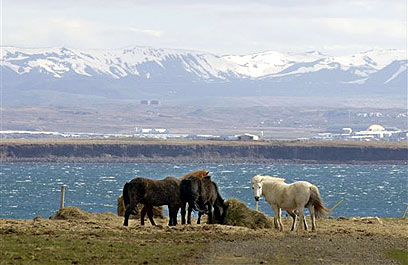
New Zealand. Safest place on earth
צילום: יוסף ג'קסון
Global ranking: Only 3 countries more dangerous than Israel
New Zealand leads Global Peace Index after Iceland loses its title as safest place in world; Iraq still at bottom of list
Far, far away: New Zealand is the safest place in the world, while Israel is almost at the bottom of the new Global Peace Index (GPI), an annual ranking of 144 of the world's nations based of how peaceful they are, which was published Wednesday by British newspaper The Guardian.
The top of the list saw an overthrow, after Iceland lost its title as the safest place in the world and fell to the fourth place, following the financial collapse in the northern European island.
As expected, New Zealand was followed at the top by Nordic countries Denmark, Norway and Iceland, with Austria and Sweden coming fifth and sixth, respectively.
Israel ranked fourth from the end, falling one place compared to last year. Even Sudan and Congo are considered safer. The Jewish state is followed by only Somalia, Afghanistan and Iraq, which is still defined as the most dangerous country in the world despite the improvement in its security following the US activity there.

Iceland falls because of financial crisis (Photo: AP)
The United States climbed six places to the 83rd, on the backdrop of the two wars the country is still engaged in overseas, a high percentage of detainees and a great availability of weapons. The slight improvement was attributed to its ability to thwarts major terror attacks since September 11 and the relative decline of other countries.
Britain ranked 35th, slightly better compared to last year, but still below most of the European Union members and diverse countries like Botswana, South Korea, Malaysia and Qatar.
According to The Guardian, the index was collated by the Economist Intelligence Unit for a new think tank called the Institute for Economics and Peace. It uses a weighted mix of 23 criteria, including foreign wars, internal conflicts, respect for human rights, the number of murders, the number of people in jail, the arms trade, and degrees of democracy.
This year's results, the report said, found the economic downturn had made the world a little less peaceful. According to the authors, this "appears to reflect the intensification of violent conflict in some countries and the effects of both the rapidly rising food and fuel prices early in 2008 and the dramatic global economic downturn in the final quarter of the year.
"Rapidly rising unemployment, pay freezes and falls in the value of house prices, savings and pensions are causing popular resentment in many countries, with political repercussions that have been registered by the GPI through various indicators measuring safety and security in society."










